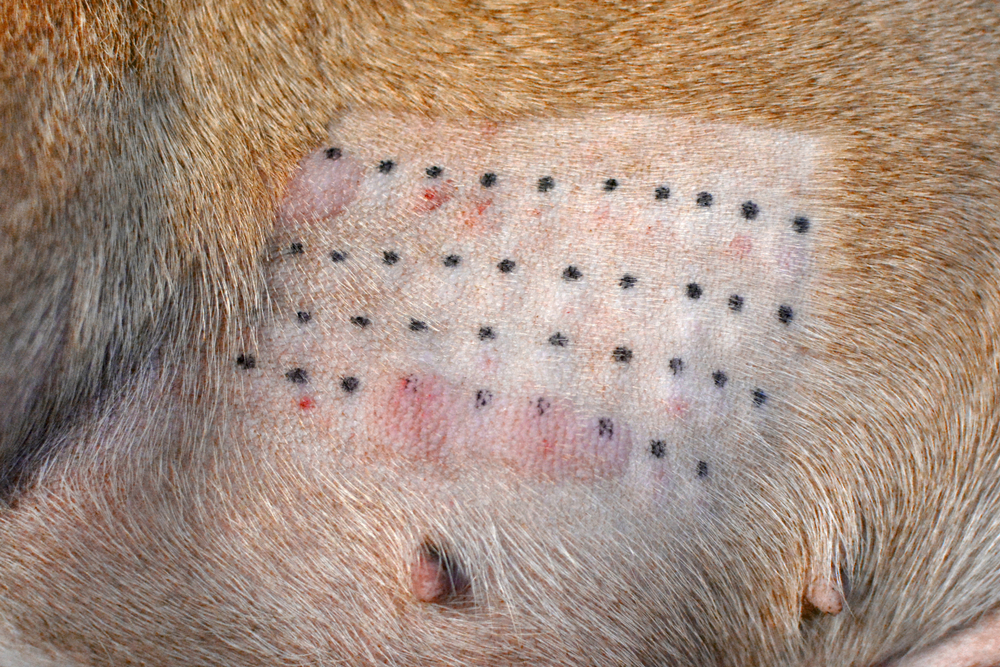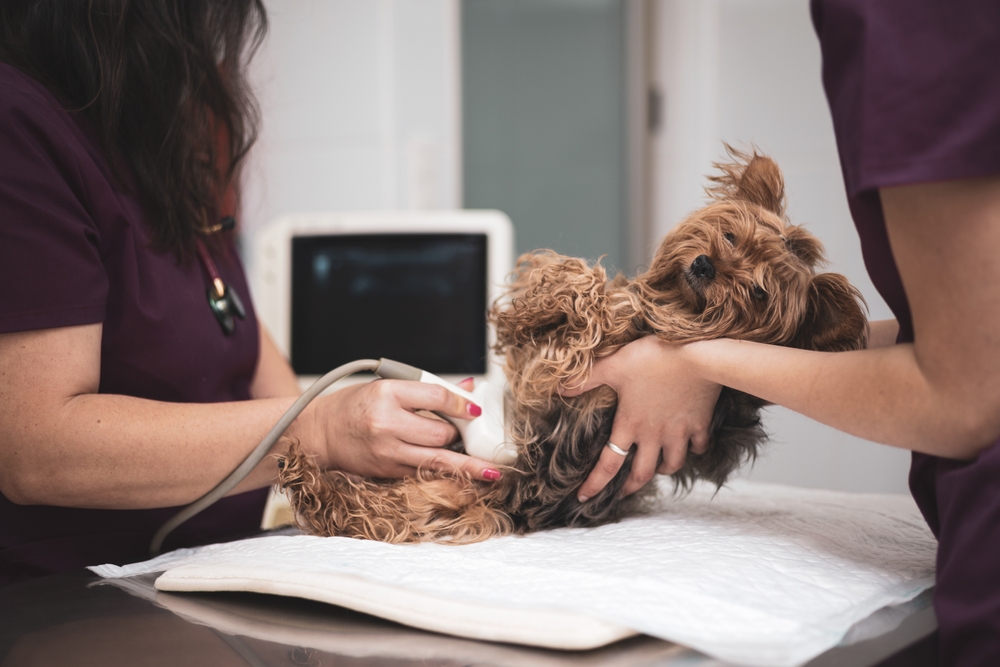You shouldn’t have to wait several days for test results or visit a specialist when your pet is ill, so we have equipped our Fremont Animal Hospital with an advanced in-house diagnostic testing suite. In-house testing quickly provides our team with answers to begin your pet’s treatment as soon as possible, and saves you time and money. Read this overview to learn about the tests our hospital offers, and how in-house diagnostic testing benefits your pet.
In-house pet diagnostic benefits
Running your pet’s tests in-house offers several significant advantages, including:
- Immediate test results — In-house tests immediately provide our team with your pet’s results, which is essential when your furry pal feels unwell. We can also monitor hospitalized or critically ill pets more effectively by rechecking tests and getting bedside results daily.
- Easier sample collection — Our in-house ultrasound allows us to collect urine and other body fluids more easily and quickly.
- Cost-effective testing — Our outside reference laboratory is an important resource, as they provide accurate results for complex testing, but using a third-party laboratory means you’ll pay a bit more. In-house tests can save you money.
- Convenient testing — Our in-house ophthalmology and allergy testing equipment allow us to handle routine eye and skin conditions that other hospitals may refer to specialists. This saves you time, money, and a trip to another hospital.
Our in-house pet diagnostic suite
To enable us to stay on top of your pet’s health needs, our hospital has the most advanced diagnostic testing equipment available. Learn about the testing our team can perform.
Digital pet X-ray and dental X-ray
X-rays (i.e., radiographs) use radiation beams to create a two-dimensional image of your pet. This imaging modality enables our team to evaluate bones, soft tissue, and organs, and help us diagnose multiple conditions. Our digital X-ray machine is an upgrade from traditional films that require darkroom processing. Digital images sent to a computer provide far more detail than film, and can be manipulated and enhanced to achieve the best diagnostic value. We can also send digital X-rays to a radiologist for expert review to enhance your pet’s diagnosis.
Digital dental X-rays provide a quick, easy way to examine tooth root structures, identify hidden dental pathology, and ensure that roots are entirely removed after extractions. Full-mouth digital dental X-rays take considerably less time than traditional film, enabling us to determine immediately whether a retake is required before moving to the next mouth area.
Pet ultrasound
Ultrasound uses sound waves to examine the abdomen, soft tissue, internal body structures, and organs such as the lungs. We regularly use ultrasound to collect urine, other body fluids, or needle biopsy samples from organs. Ultrasound differs from X-ray, because this imaging modality doesn’t use radiation and provides a moving, dynamic image.
Pet laboratory
Our in-house pet laboratory allows us to obtain results for blood work, urinalysis, fecal examinations, and cytology within minutes, which is extremely helpful for a sick pet. Blood work and urinalysis provide valuable information about organ function, fecal examinations can detect intestinal parasites, and cytology helps identify some tumors, and skin and ear infections. We may recommend in-house blood or urine tests before surgery, when your pet is not feeling well, or to monitor a hospitalized pet.
Pet ophthalmology testing
Our Fremont Animal Hospital team has the necessary equipment and training to perform a specialized glaucoma test to determine your pet’s eye pressure. We can also check tear production with a Schirmer tear test and look for eye ulcers and injuries by performing a fluorescein dye test. These ophthalmic tests enable us to diagnose and treat routine eye problems such as conjunctivitis, corneal ulcers, or uveitis, and help us determine when to refer your pet to a veterinary ophthalmologist.
Pet allergy testing

Allergies commonly affect pets, causing itchy, red skin, and recurrent skin and ear infections. The most common allergy culprits are flea bites and other environmental triggers such as pollen, mold, dust mites, and pet dander. While anti-itch and anti-inflammatory medications can help treat allergy signs, these medications do not resolve the underlying problem. Our hospital team can perform allergy blood testing to determine your pet’s exact allergens, which can help you implement strategies to help your furry pal avoid the offending substances. We can also customize allergy immunotherapy to desensitize your pet to their allergens.
Fremont Animal Hospital is your one-stop location for primary veterinary care, whether your pet needs a routine wellness examination or medical care for an illness. To schedule your pet’s wellness visit, including our in-house diagnostic services, or you suspect they are ill or have an injury that needs immediate diagnosis and treatment, contact our team.














Leave A Comment